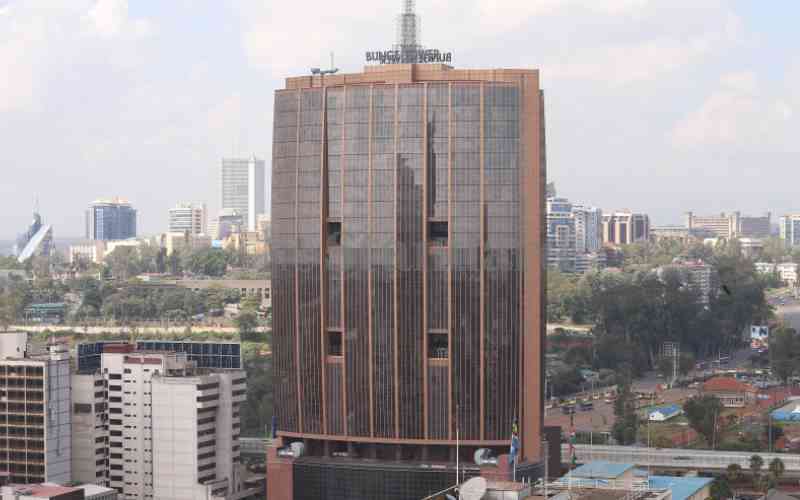In the same week that Kenya enjoyed glorious moments in the international media (thanks to GES 2015), MPs struggled to pass a legislation that allows them to dip their fingers in the taxpayer’s till long after retirement.
The irony could not have been lost on many.
Make no mistake, Kenya is on the move. Africa, too, is on the move. Only we, the politicians, seem not to see that reality, a reality that hit me really hard this last week.
President Barack Obama’s visit to Kenya rekindled my admiration of the innovativeness of our youth. Long before GES 2015, I appreciated the abilities of young Kenyans in developing ICT-based innovations that can change the way we do business by increasing productivity and efficiency.
President Obama’s recognition of the achievements of young Kenyans – such as Josephine Kulea, who runs a foundation that rescues young girls from early marriage and founder of M-farm Jamila Abbas, a mobile app that lets farmers follow the prices in the market and help them make the right decisions about where and when to sell their produce – is a clear manifestation of the potential of the Kenyan youth.
Right beneath our feet is a revolution that is gaining momentum. It is unstoppable. Kenya has the wind in its technological sails; research placed Kenya ahead of technological giants India and Philippine in ICT potential.
Fibre optic lines in Kenya are five times ahead of all African countries, knowledge economy can put Kenya at par with Singapore and Thailand in the next decade and Kenya has one of the eight global research centres by IBM.
What’s more, there is a youthful population that is increasingly growing impatient with the political class.
Yet despite that, many Kenyans are not aware of the contribution of the Kenyan youth to innovation. iHub research founded by former Information PS Bitange Ndemo conducts qualitative and quantitative studies on technology, innovation and entrepreneurship, as well as the intersection between governance and technology on the continent. I visited the i-Hub research centre on Ngong road, Nairobi recently and was amazed at the level of sophistication and innovation.
United Nations Secretary General Ban ki-Moon expressed his amazement when he discovered the input of innovation through this Kenyan-based organisation to the United Nations’ peace keeping operations. i-Hub and a sister company, USHAHIDI developed BRCK, a mobile-based self-powered WIFI system that can be used anywhere to access the Internet. This innovation could come in handy for President Uhuru Kenyatta’s laptop project for primary schools.
The WIFI system can give access to 20 computers and comes in handy for institutions and schools, including hospitals where there is no electricity connection or there are persistent power outages.
The software being developed by this group will go a long way in increasing access for many children who otherwise would have been left out. The bridging of the digital divide might not be that difficult.
Even children in very remote places can access quality education at a much lower cost. One of the advantages, besides giving pupils the much-needed exposure, is that this innovation will save children from the burden of back-breaking rucksack bags. A near weightless tabletcan carry multiples of books!
I did not stop there. My quest to know more took me to Digital Data Divide (DDD) Kenya Ltd, a data processing company.
Based in Ngara, a modest address in Nairobi, the amount of data processing going on will shock many Kenyans. The technology being employed can revolutionise the way we do business. DDD is helping many countries around the world to digitalise their data. From creating data base for family trees in the United Kingdom, to managing the records of the European stock exchanges, the list is long. The technology can also create an unlimited number of jobs. Many school leavers can enrol with and work for leading wholesale and retail outlets by marketing their products through the internet.
Stay informed. Subscribe to our newsletter
The innovation in ICT can also help in reducing runaway corruption in public service. The process of automating the procurement system alone can save the country billions of shillings. Procurement through tender committees is not transparent enough since there is still room for manipulation. A product shown to me by one of the IT firms, if employed, can easily reduce the bureaucracy and red tape involved in procurement and project monitoring system. Technology can also help in record-keeping.
The take-away from these excursions is that there is a lot that can be utilised at the county level from this revolution. Not just the opportunity for jobs, but the chance to inculcate a culture of transparency and innovation. So while the politicians crafted more ways of ‘eating’, the youth, Kenya’s future, are thinking and devising more ways to create wealth and move the country forward.
Two sets of minds, building the nation, differently.
 The Standard Group Plc is a
multi-media organization with investments in media platforms spanning newspaper
print operations, television, radio broadcasting, digital and online services. The
Standard Group is recognized as a leading multi-media house in Kenya with a key
influence in matters of national and international interest.
The Standard Group Plc is a
multi-media organization with investments in media platforms spanning newspaper
print operations, television, radio broadcasting, digital and online services. The
Standard Group is recognized as a leading multi-media house in Kenya with a key
influence in matters of national and international interest.
 The Standard Group Plc is a
multi-media organization with investments in media platforms spanning newspaper
print operations, television, radio broadcasting, digital and online services. The
Standard Group is recognized as a leading multi-media house in Kenya with a key
influence in matters of national and international interest.
The Standard Group Plc is a
multi-media organization with investments in media platforms spanning newspaper
print operations, television, radio broadcasting, digital and online services. The
Standard Group is recognized as a leading multi-media house in Kenya with a key
influence in matters of national and international interest.









